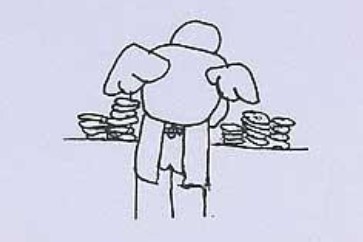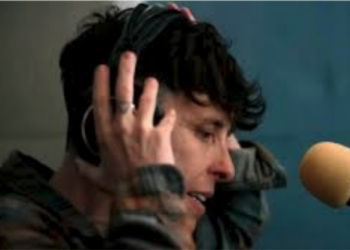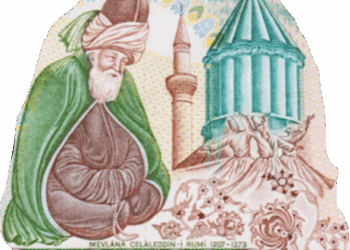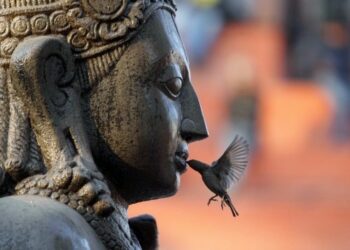
What does it mean to be nobody? One kind of ‘nobody’ identifies as someone who feels less than, unimportant. Another kind self-identifies as an outsider. And another equates being nobody with being ordinary, average. Yet almost everyone wants to be special, some kind of “somebody.” And there’s so much effort, and so much pain, because of these identifications.
All these kinds of nobody are really a kind of somebody identified with being a nobody. In our pain, we can overlook the core of ourselves that’s deeper than all roles, all identifications. Deep within is the real nobody-ness, a nobody-ness that’s universal and intrinsically sacred, not identified as this or that, free from comparisons with others, completely removed from imposed standards of success and failure, achievement or non-achievement.
The more we can divest ourselves of false identifications, the more we can recognize and experience the nature of our true nobody-ness, which is open and not limited by any definitions of what it means to be “somebody.” And the more we can recognize it in ourselves, the more we can recognize it in others, regardless of their roles or how they regard themselves. This nobody-ness is a sacred space, it is a place where we can connect with the source of our being. The search for meaning and the search for love are expressions of the meaning and love that are already present in that space within, the holy inner light that seeks to be realized in each and every one of us.
In Albert Huffstickler’s poetry and in the poem posted below, we feel that he sees that sacred space in everyone, in all our journeys, whether we live as nobody or somebody. Throughout it all, he writes with a tender recognition of our precious humanness and the sacred music threaded through everything, including the pain of loneliness and isolation. He sees the brokenness, the nobility, and the endurance of the human spirit. And he sees in every one of us the same essence, the same “I am” that isn’t defined by status or occupation, and in every one of us the same need for love and human connection.
© 2022 Shanti Natania Grace
Art by Albert Huffsticker
~~~~~~~~~~~
With thanks to Bodhisattva Shree Swami Premodaya and his discussions on identifications and “being nobody.”
“When you’re nobody, you’re everybody.
When you’re nobody, you see yourself in every pair of eyes.”
– Bodhisattva Shree Swami Premodaya –
from Truth Speaks: Answers from the Master, Volume 1
~~~~~~~~~~~
Dishwashers and Other Forgotten Angels
by Albert Huffstickler
A restaurant
is a place
you can start eating
when you start work—
which explains why
they were my haven
for many years.
The anonymity
of dishwashing—
that still-faced
stranger hired
off the streets
works in silence,
eats everything.
He worked in
silence, deferred
to everyone,
asked for nothing.
Dishwashers are
like sparrows:
they come and go
in a brown
anonymity.
Christ and the
Buddha came
back on the same
day, got jobs
in a restaurant:
Buddha washed
dishes while
Jesus mopped up.
I’ve been so
anonymous in
my time that
I could walk
down a street
and never cast
a shadow.
I am not who
you think I am.
I am not who
I think I am
I am not anyone
at all and yet
here I am.
He died in an alley
resting against a garbage can.
The stars lit candles for him
while a stray cat howled
a litany.
He tried for many years
to become somebody
imitating the various
somebodies around him
but everyone knew
he was just a nobody
acting like somebody.
The whore and the dishwasher
camped in a flophouse
slept in the same bed
never touching—
leaves off the same tree
fallen in the gutter.
He did not choose
to take a stand,
flitted from city to city
talking to himself
One foot in time,
the other on
a banana peel
Grey as the city rain
he walked
bent forward into
the falling spray,
grey in the grey rain,
invisible
Loneliness demanded
that he be someone
in order to find someone.
But the task proved
too great. He could not
hold an image of himself
over his body long enough
to be seen much less
held.
He was someone
you always saw
only in your
peripheral vision
Walk into the State Employment Office
in any city in the country and
get sent out immediately—
Somebody always needs a dishwasher.
Beneath it all
I remain
what I was
in the beginning:
a derelict in time,
the ghost of someone
who never arrived
Pasadena 1953
Dino’s Italian Inn
fragrance of pizza
and spaghetti
Hand wash in three tubs:
wash, rinse, disinfect
walk home at midnight
beneath clear California stars
I tried
I tried
to match name
to occupation
and come up with
someone
I could be constantly.
But this required
a tension that
all the energy
in the world
could not maintain.
In the end,
exhausted,
I crept back
into the shadows
The rain does not care
who you are
Whore or Goddess,
its touch is for everyone
They will say he walked here
but we did not see him.
Then how did you know?
We saw his shadow
when he passed the light.
Adolph the manager
of Maryland Fried Chicken
made Tiffany lamps
asked for nothing
fed me shrimp and chicken;
we were fellow artists.
Warm as a
remembered touch
the rain today
Sometimes I would tell them
I was a poet
but they never asked
to see what I’d written:
everyone knows that
poets don’t wash dishes
for a living
Day labor offices
are much the same
You’re a body
You’re a name
You don’t have to be
anybody
Your name is called
and you just go,
do what they tell you,
come back and get paid.
Day labor offices
are much the same
You’re a body
You’re a name
You eat your lunch
in a corner
sit out back smoking
do what you’re told
leave at day’s end
your cloak of silence
around you.
Only sometimes
a pretty face
will etch itself
on your space
and you’ll hesitate
start to speak
then fall back into
your anonymity
dive to the bottom
where the light is green
and there’s no one
but you.
Day labor offices
are all the same
You’re a body
You’re a name.
There’s a place where
you can be somebody
without making an effort
but it is not here.
There’s a place where
you’re known before you speak
but it’s not this place.
There’s a place where
recognition does not bring pain.
Perhaps another planet.
Perhaps another dimension.
It’s easy to quit
a restaurant:
they’re not surprised
they expected it.
They pay you and
you’re gone
like a million others
erased from time
not even a memory
There have been men
who lived out lives
washing dishes
barely speaking
died somewhere
Time never knew them
They are unrecorded
Something about
a woman’s hips,
that line,
that flow.
Forget that one thing
and you’re free to leave.
I live with this contradiction:
I am the voice of those who cannot speak.
I am the alien caught in the web of time
whose power lies on the other side,
the speechless one with knowing in his eyes
made dumb by revelation.
I am that silent one inside you
who awaits the revealing word,
I am the voice forgotten
that speaks your remembered name.
If I
should wake
before I
die, rest
your small
hand
against
my cheek
in benediction
or denial
or just
to share
your body’s
warmth.
Ruta Maya Coffee House, Austin
April 22, 1996















